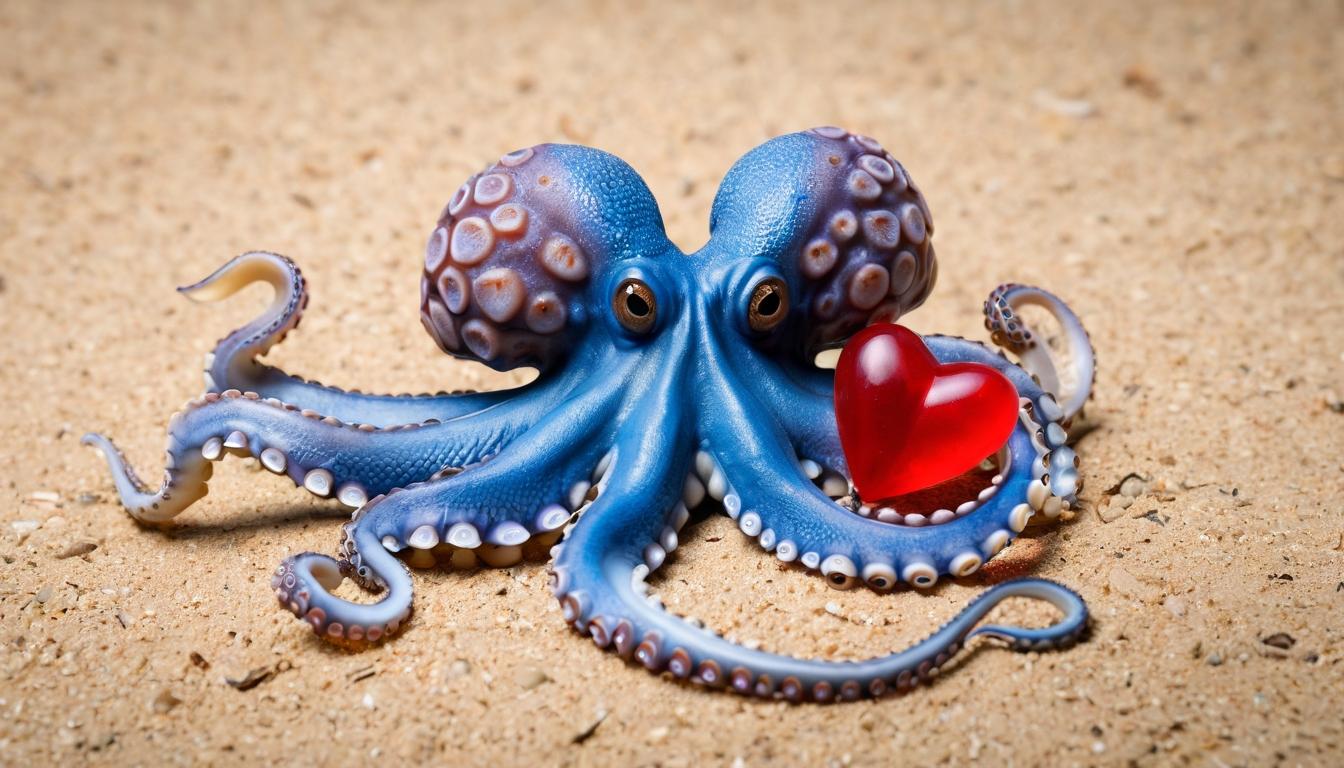Beneath the ocean's surface, a creature with three hearts pumps blue blood through its body while solving complex puzzles that would challenge many mammals. The octopus, often misunderstood as a simple mollusk, possesses one of the most extraordinary biological systems in the animal kingdom. Their copper-based blood, which appears blue when oxygenated, allows them to thrive in cold, deep waters where iron-based blood would fail. This remarkable adaptation is just the beginning of their incredible story.
Each of the octopus's three hearts serves a distinct purpose. Two hearts pump blood to the gills, while the third circulates it to the rest of the body. When swimming, the systemic heart temporarily stops beating, explaining why these creatures prefer crawling to swimming as their primary mode of movement. This unique cardiovascular system supports an animal capable of changing color and texture in milliseconds, blending seamlessly into virtually any environment.
Octopuses possess intelligence that continues to baffle marine biologists. They've been observed opening jars, escaping aquariums, and even using coconut shells as portable shelters. Their distributed nervous system means that each arm contains its own 'mini-brain,' capable of making independent decisions. This explains how an octopus can multitask with such efficiency, controlling eight arms simultaneously while processing visual information and planning escape routes.
Their problem-solving abilities extend to tool use, once considered a uniquely human trait. In laboratory settings, octopuses have demonstrated the ability to navigate mazes, recognize individual humans, and remember solutions to problems for weeks. Some species collect shiny objects to decorate their dens, while others have been observed carrying venomous tentacles from Portuguese man o' war jellyfish as weapons.
The octopus's reproductive cycle contains its own tragic beauty. Males die within months of mating, while females guard their eggs relentlessly, starving themselves to protect the next generation. During this vigil, which can last up to six months, the mother octopus gently cleans and oxygenates each egg, ensuring her offspring's survival at the ultimate cost.
Their camouflage capabilities surpass any military technology humans have developed. Specialized skin cells called chromatophores expand and contract to create patterns and colors that match their surroundings precisely. Meanwhile, papillae in their skin allow them to alter their texture to resemble rocks, coral, or sand. This incredible adaptation serves both as protection from predators and as an advantage when hunting.
Octopuses also possess an unusual defense mechanism: when threatened, they can release a cloud of ink containing melanin along with a compound that dulls predators' sense of smell. This combination creates both a visual smokescreen and a chemical distraction, allowing the octopus to escape while the predator struggles to locate its prey.
Their intelligence extends to play behavior, a trait rarely seen in invertebrates. Octopuses in captivity have been observed repeatedly pushing plastic bottles into water currents, watching them circle back, and then pushing them again. This apparent enjoyment of repetitive, non-survival-oriented activity suggests a level of consciousness and curiosity that continues to surprise researchers.
The common octopus has about 500 million neurons in its body—more than a rat—with two-thirds located in its arms rather than its central brain. This distributed intelligence allows each arm to 'taste' and 'feel' independently, processing information locally before sending it to the main brain. This explains why a severed octopus arm may continue to crawl and grasp objects for up to an hour after separation.
Despite their incredible abilities, octopuses have short lifespans, with most species living only one to two years. This brief existence makes their rapid learning and complex behaviors even more impressive. They must learn to hunt, avoid predators, and navigate their environment within months of hatching, without parental guidance after the eggs are laid.
Recent research has revealed that octopuses can edit their own RNA, allowing them to make rapid adaptations to changing water temperatures and conditions. This genetic flexibility may explain how they've survived for nearly 300 million years, through multiple mass extinction events that wiped out countless other species.
The more scientists study these remarkable creatures, the more questions arise about the nature of intelligence and consciousness. Octopuses challenge our understanding of what makes an animal 'smart' and force us to reconsider the very definition of thought. Their alien yet familiar behaviors continue to reveal that intelligence takes many forms throughout the animal kingdom.
The secret lives of octopuses: three hearts, blue blood, and astonishing intelligence

